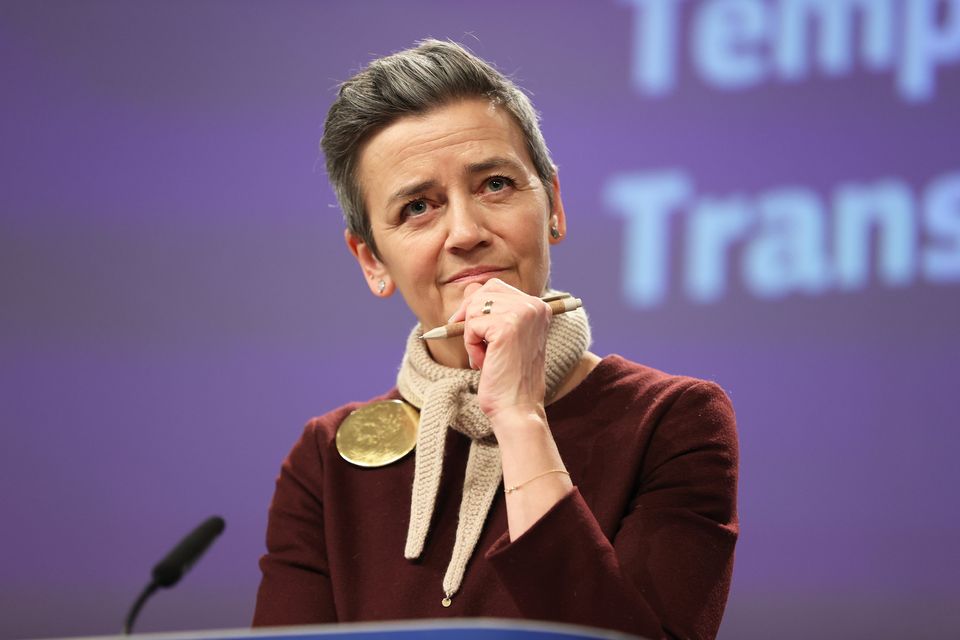[ad_1]
An opinion by the advocate-general of the Luxembourg-based European Court of Justice is the second-last chapter in a long saga that has been playing out over the last decade.
A final judgment is expected to follow in a number of months. While the opinion is non-binding, it is often a good indication of the general reasoning in any subsequent court judgment.
The €13bn has been held in a trust or escrow fund since 2018, making profits and losing value along with financial market movements.
As of the end of December 2022, net assets of the fund totalled just under €13.4bn, which represented a €259m reduction in value for the year, largely reflecting swings in bond markets.
The final amount held in the fund at the conclusion of the entire legal process will either be returned to Apple or paid to the State, depending on the court judgment.
The money was set aside after the European Commission concluded in 2016, following an investigation, that Apple had enjoyed “selective” advantages over other Irish-based companies for decades, thanks to Revenue-issued tax rulings in 1991 and 2007 that allowed the tech giant to pay a tax rate as low as 0.005pc one year, it was claimed.
Ireland and Apple contested the decision and in 2020 the EU’s general court ruled in their favour. The Commission decided to appeal it, and today’s opinion relates to that appeal.
The original case was taken by Commission competition chief Margrethe Vestager, who spearheaded an EU push against profit-shifting by large (mainly US tech) multinationals, using the bloc’s state aid rules.
She took similar cases against global brands including Nike, Converse, Starbucks, Ikea and McDonald’s in Luxembourg and the Netherlands.
Margrethe Vestager. Photo: Getty Images
But Ms Vestager will not be in place to hear the opinion. She is on leave to focus on her bid to become the next head of the European Investment Bank, the bloc’s long-term lending arm.
The case is a landmark one, both because of the size of the contested tax bill and the Commission’s view on where IP-related profits should be booked.
Commission lawyer Paul-John Loewenthal told the court at a hearing in May that the outcome of the Apple case “will determine whether member states can continue to grant multinationals substantial tax breaks in return for jobs and investments”.
The EU court’s decision will come the same week the Government is debating what Finance Minister Michael McGrath called “a once-in-a-generation reform to our corporation tax system”, with a new 15pc rate for large, more profitable firms set to begin operating from next year.
That higher rate, itself part of a decade-long process involving around 140 countries, will effectively end Ireland’s low-tax offering, but the Government hopes it will end accusations that Ireland is a tax haven.
Junior Finance Minister Jennifer Carroll MacNeill said Ireland’s reputation abroad is undeserved.
“It’s very important to recognise where Ireland is, the reality of where Ireland is, versus some of the commentary about us, so that’s very clear and that’s being put into law literally as we speak,” she told reporters in Brussels yesterday, referring to the 15pc rate, which is being introduced via the Finance Bill 2024.
But she refused to be drawn on what the Government will do if the decision goes in favour of the Commission and Ireland gets to keep the money.
“I’ll see what the decision is,” she said. “I come from a legal background and I’m always keen to see what the outcome of the case is before commenting on it. Ireland’s position has been very clear throughout, but it’s important to recognise that there is a commentary coming on that [on Thursday]. We’ll have to just reflect and see that.”
[ad_2]
Source link

